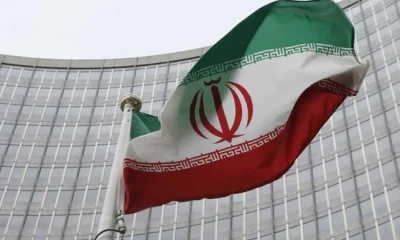Amid escalating geopolitical tensions, the
Iranian Foreign Ministry has summoned Charge d’affaires Nasser Kanaani to
protest against Pakistan’s recent missile strikes in Iran’s Sistan-Baluchestan
province.
The attack resulted in the deaths of
nine individuals, including women and children without Iranian nationality.
Pakistan claimed to have conducted “precision
military strikes” against alleged terrorist hideouts in response to earlier
missile and drone attacks by Iran on bases of the Sunni Baloch terrorist group ‘Jaish
al-Adl’ in Pakistan’s Balochistan province.
Expressing regret over the loss of
lives, Pakistan’s Foreign Ministry emphasized its respect for Iran’s
territorial integrity and characterized Iran as a brotherly country.
Following Pakistan’s counter-strikes,
China offered to play a “constructive role” in easing tensions between the two
nations, urging restraint and calmness to prevent further escalation.
Chinese Foreign Ministry spokesperson
Mao Ning, however, claimed unawareness of Pakistan’s airstrikes inside Iran but
emphasized the importance of respecting the sovereignty, independence, and
territorial integrity of all countries.
The standoff between Iran and Pakistan
unfolds against the backdrop of Pakistan’s economic challenges, with a $350
billion economy grappling with high inflation, fiscal deficits, and ongoing IMF
bailout measures.
The international bonds of Pakistan experienced
a decline after the announcement of the strikes. Despite the tensions, China
remains an all-weather ally to Pakistan, and Iran is increasingly fostering
ties with Beijing, allowing China to expand its influence in the West Asia
region. China also imports a significant amount of oil from Iran.
The situation is complex, given the
intertwined economic relations between Iran and Pakistan, including Iran
supplying electricity to many areas in Pakistan and engaging in unofficial
trade of commodities such as Liquified Petroleum Gas and Iranian diesel.

















